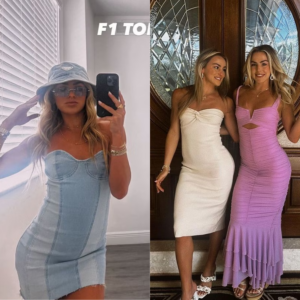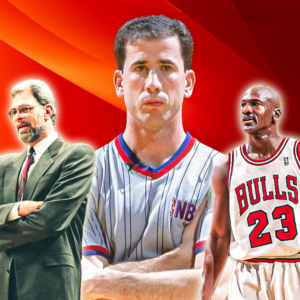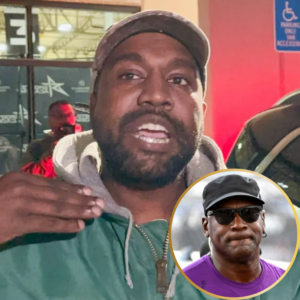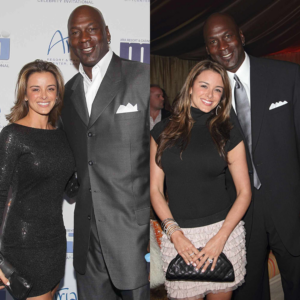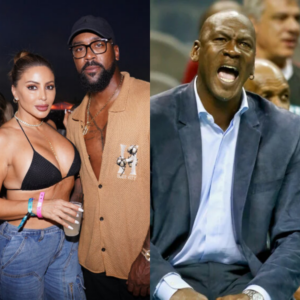SHOCKING video exposes the REASON Marlon Wayans, Kevin Hart & Steve Harvey HATES Katt Williams
The conversation surrounding black men donning dresses has sparked intense debates and polarizing opinions within the community. Some view it as a trivial matter, while others argue it symbolizes deeper issues of identity, integrity, and societal pressures. In the midst of this discourse, voices like that of Cat Williams have emerged, shedding light on what they perceive as a concerning trend in Hollywood.
Williams, known for his unapologetic candor, has openly criticized the practice of black men wearing dresses in entertainment. He questions the integrity of those who choose to participate in such portrayals, highlighting the influence of money and fame in their decisions. Williams’ sentiments have ignited both support and backlash, with some praising his boldness and others labeling him as controversial.

One cannot overlook the cultural significance of this debate. It goes beyond mere fashion choices; it delves into the complexities of identity, representation, and the power dynamics at play in the entertainment industry. The portrayal of black men in dresses has historical roots, often traced back to minstrelsy and the perpetuation of stereotypes.
However, it’s essential to acknowledge that the issue is not black and white. While some argue that wearing a dress is a form of artistic expression, others question whether it perpetuates harmful stereotypes and undermines black masculinity. The debate underscores broader conversations about authenticity, self-respect, and the societal expectations placed on black entertainers.
Furthermore, the reactions to Williams’ comments reveal deeper tensions within the black community. Some view his critique as a call to uphold traditional values and resist assimilation into mainstream norms. Others see it as an oversimplification of a complex issue, dismissing the broader systemic challenges faced by black artists in the industry.
Amidst the heated exchanges, it’s crucial to foster nuanced discussions that address the multifaceted nature of the issue. Instead of resorting to polarizing rhetoric, there is a need for empathy, understanding, and a willingness to engage with differing perspectives. Only through dialogue and introspection can we navigate the complexities of identity and representation in contemporary society.
In conclusion, the conversation surrounding black men wearing dresses is far from trivial. It touches upon deep-seated issues of identity, representation, and societal pressures within the black community and the entertainment industry at large. By engaging in thoughtful discourse and challenging prevailing norms, we can strive towards a more inclusive and authentic portrayal of black experiences in media and beyond.
News
PHOTO: Hanna Cavinder, worth $924,000 NIL, wears an all-denim ensemble at the Miami Grand Prix in 2024. tt
PHOTO: $924,000 NIL-valued Hanna Cavinder show off an all-denim outfit for Miami Grand Prix 2024 Hanna and Haley Cavinder attended Miami Grand Prix 2024. Hanna Cavinder and…
Luka Doncic’s mother during the Mavericks-Clippers playoff game caught everyone’s attention with her exquisite ensemble. tt
Luka Doncic’s Mom Was Turning Heads With Her Stunning Outfit At Mavericks-Clippers Playoff Game Luka Doncic mother (Photo via Mirjam Poterbin/Instagram) Luka Doncic’s parents, Mirjam Poterbin and…
In an explosive Netflix documentary, Tim Donaghy exposed Michael Jordan, Phil Jackson, and the NBA (VIDEO) tt
Tim Donaghy Exposed The NBA, Phil Jackson, & Michael Jordan During Explosive Netflix Documentary (VIDEO) The name Tim Donaghy will forever be connected to the NBA as some fans…
During a rant, Kanye West shockingly claims that Michael Jordan’s father was “sacrificed” to the Illuminati (VIDEO) tt
Kanye West Makes Shocking Claim That Michael Jordan’s Dad Was ‘Sacrificed’ To The Illuminati During Rant (VIDEO) Kanye West has lost a lot of deals and a ton…
Details Of Michael Jordan’s Prenuptial Agreement With Current Wife Yvette Prietto Are Revealed in a New Report. tt
New Report Uncovers The Details Of Michael Jordan’s Prenup With Current Wife Yvette Prietto After going through a massive divorce in the past, NBA Great Michael Jordan apparently has a prenup…
“I Feel Bad for Michael”: Charles Barkley Gives His Take on Marcus Jordan’s Messy Affair With Larsa Pippen. tt
“I Feel Bad for Michael”: Charles Barkley Gives His Take on Marcus Jordan’s Messy Affair With Larsa Pippen Charles Barkley, Michael Jordan, Larsa Pippen and Marcus Jordan…
End of content
No more pages to load
